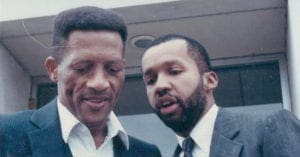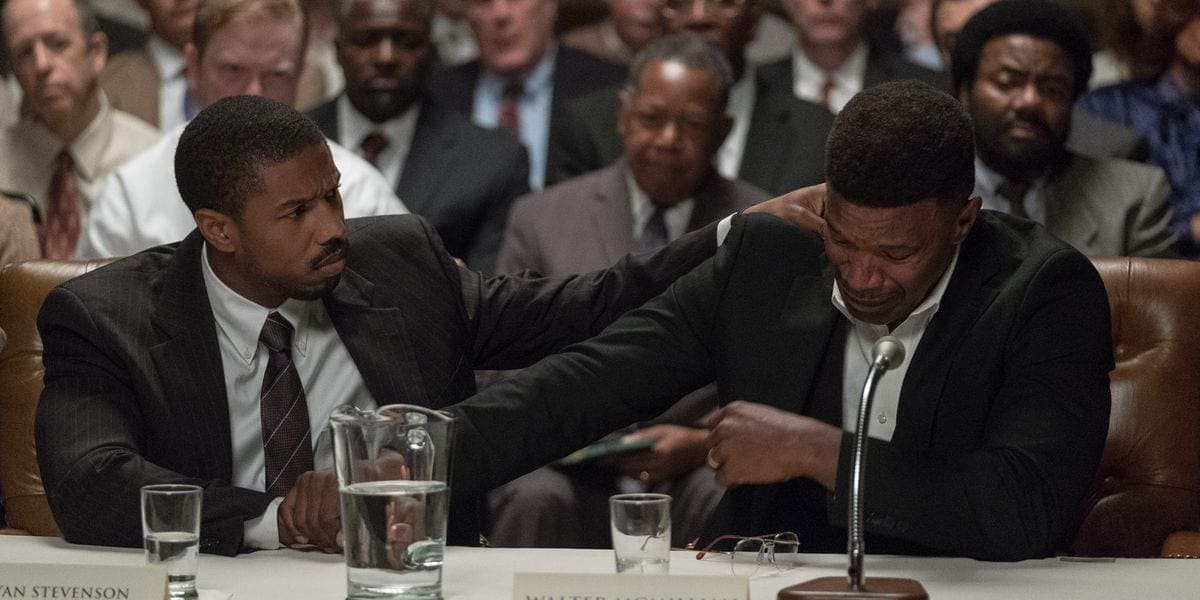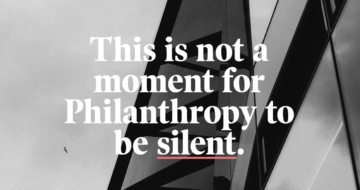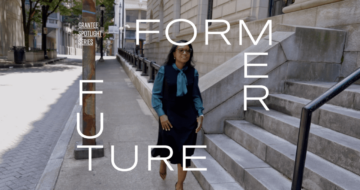In a moment largely focused on the importance of prosecutors in reforming our nation’s justice system, the upcoming release of the film Just Mercy serves as a well-timed reminder of the importance of access to legal counsel. Access to quality counsel plays a critical role in advancing a justice system that is actually just and, unfortunately, it is sorely lacking across the country.
The movie, based on an autobiographical book by the same name, follows lawyer Bryan Stevenson as he takes on the case of Walter McMillian, a 46-year-old black man in Monroeville, Alabama, who was convicted of killing a young white woman. Despite multiple alibi witnesses and no physical evidence, Mr. McMillian was found guilty after just a day and a half trial. And — just like that — a husband and father was put on death row.

A scene from the new film, releasing in select theatres on Dec. 25, 2019.
This story reinforces the brokenness of our nation’s justice system, and the great harm it causes to those it ensnares. The prosecutor, the judge, and the police work tirelessly to ensure the guilty verdict for the man that they assumed committed this crime. It’s not because they are villains or have no moral scruples — it’s just that they are so certain they are right. It is only because this was a death penalty case, and Mr. McMillian had access to counsel after trial, that the travesty of the legal process could come to light.
The danger of this story is that some will leave the theatre feeling like the system worked because Mr. McMillian was vindicated. But the opposite is true. The system produced Mr. McMillan’s wrongful conviction and death sentence; it is his exoneration that was a fluke. It is hard to overstate the amount of financial resources, time, and perseverance that is required to take multiple appeals in various courts and how little resources are actually devoted to providing people who are poor with lawyers.
So many people in this country revere the First and Second amendments of our constitution, but I wonder how many know about the Fourth, the Fifth, the Sixth, and the Eighth. Every single one of those amendments is championed by public defenders who represent those who cannot otherwise afford legal assistance. Communities can, and should, join in this fight by serving on juries, contributing to bail funds, electing prosecutors who promote alternatives to incarceration, and demanding that their local legal system be funded in a manner that allows for quality defense to all those who are accused.

Walter McMillian and Bryan Stevenson. Photo from eji.org.
People who are accused of a crime deserve easy and quick access to quality public defenders. These underpaid – and often profoundly undervalued lawyers – help hold our systems accountable for implementing our most basic constitutional values and some of our most sacred moral ones. But our culture, which glorifies judges and prosecutors and disparages lawyers who represent those accused of violent crimes, hasn’t made it easy for lawyers to step into this vital role. Bryan Stevenson was a lawyer just three years out of law school who took on an unbelievable emotional, financial, and procedural burden to do justice. Without lawyers like Bryan, prosecutors go unchecked, police assumptions go unchallenged, and judges’ bad decisions are unassailable. It is these lawyers who fight the system of banal cruelty every day to force prosecutors, juries, and judges to go beyond their fear and assumptions and look at the people and facts before them.
If the movie is anything like the book—and I hope it is—you will leave the theater feeling inspired and want to do something. But, it can be hard to know what to do in a system as big, complicated, and broken as our nation’s justice system.
Here are three resources that can help:
- Learn more about the public defense system in your state at 6th Amendment Center.
- Grow your understanding about the importance of the right to counsel at the Right to Counsel National Campaign.
- Donate to organizations that support these tireless advocates like Gideons Promise.
It is my hope that stories like the one told in Just Mercy begin to reshape our view of public defenders and develop a groundswell of support for these heroes that, so often, go unnoticed and under-resourced in the fight to reform our nation’s justice system.



